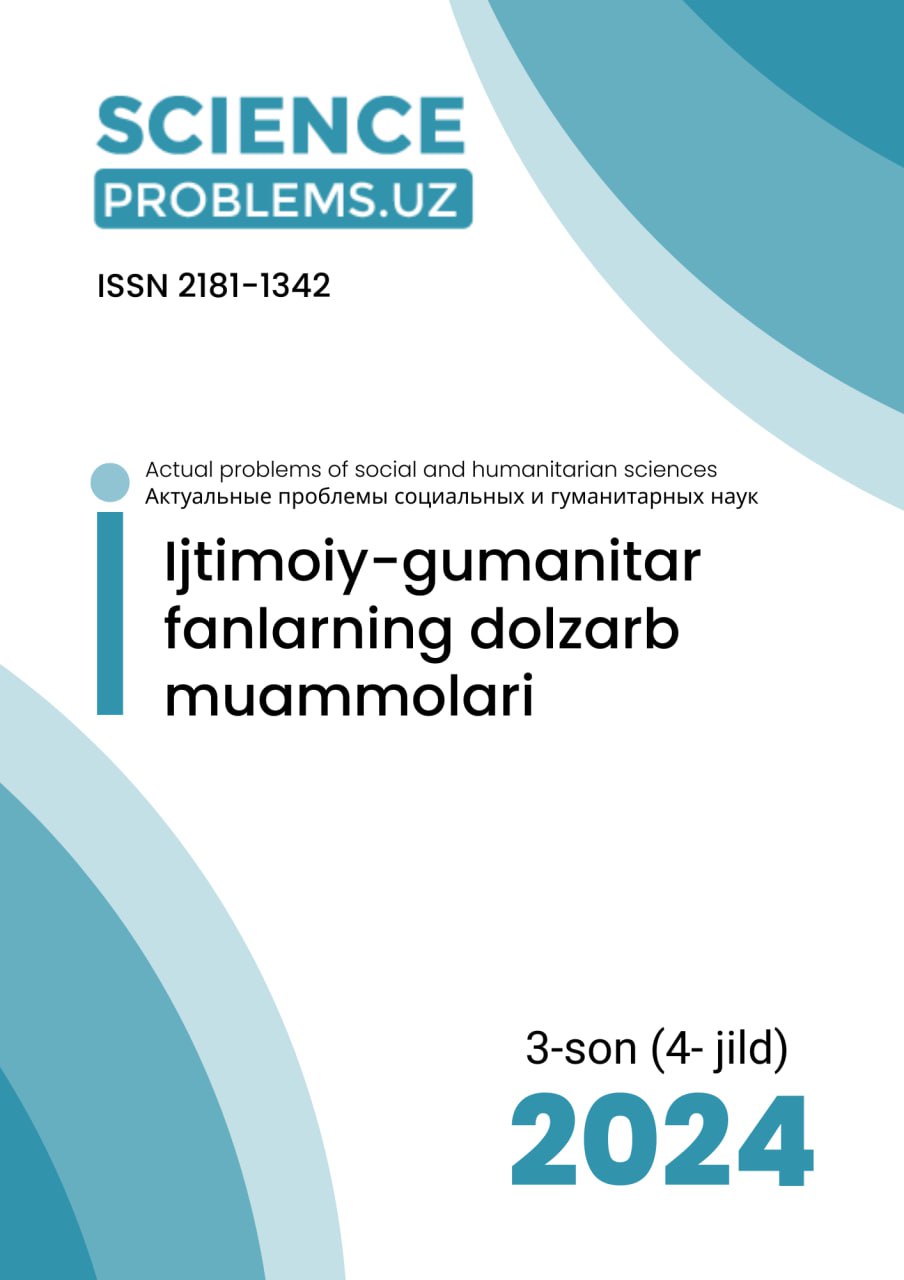LINGUACULTURAL PECULIARITIES OF THE CONCEPT “HAPPINESS” IN ENGLISH AND UZBEK LANGUAGES
Kalit so'zlar
https://doi.org/10.47390/SPR1342V4I3Y2024N44Kalit so'zlar
concept, cognitive linguistics, happiness, linguacultural, national cultural aspects, national characteristicsAnnotasiya
In modern linguistics, there are no cases of comprehensive study of concepts, that is, the study of both theoretical and practical aspects. Thus, it is not an easy task to determine the ways of lexical expression of a certain concept. The purpose of this article is to identify stereotypes related to the concept of happiness in the linguistic culture of the Uzbek and English languages, to study the linguistic space, as well as to analyze some literary sources. This article is devoted to the linguacultural aspects of concept “happiness” in modern English and Uzbek languages. Furthermore, it is analyzed both as common value of humankind as well as cultural specify of some nation. Attitude to happiness allows revealing the existential characteristics, norms, traditions of different social groups, since a different interpretation of happiness within the framework of different cultures reveals their ethnos cultural specificity and perception of the world and people.
Manbalar
Abdurazakov, F. A., & Meliev, S. K. (2022). Interactive Methods Used in the Formation of Creative Activity (On the Example of Primary School Students). Galaxy International Interdisciplinary Research Journal, 10(1), 257-262.
A Concise Etymological Dictionary of Modern English.
Bobonazarovna, A. S. (2022). Interpretation of students' professional formation as a psychological problem. European journal of innovation in nonformal education, 2(4), 149-150.
Cassel’s concise English dictionary. Finland, 1997. 467p.
Erkinovna, N. D. (2021). Anxiety-as an emotional state. ACADEMICIA: An International Multidisciplinary Research Journal, 11(10), 2242-2245.
Кубрякова Е. С. Логический анализ языка: культурные концепты. М.: Наука, 1991. 270 c.
Раҳматуллаев Ш. Ўзбек тилининг этимологик луғати. Ташкент, 2003. 182 б.
S. M. D. (2022). Socio-Psychological Views of Eastern Thinkers on Social Tolerance. EUROPEAN JOURNAL OF INNOVATION IN NONFORMAL EDUCATION, 2(3), 219-220.
Sattorova, M. (2022). DIAGNOSTICS OF SOCIAL TOLERANCE OF STUDENTS. Science and innovation, 1(B5), 526-528.
Sharafutdinova, K. G., Kulmamatova, F. K., & Haydarova, S. (2021). The role of cognitive psychology in the elimination of destructive behavior. Asian Journal of Multidimensional Research, 10(4), 957-964.
Sharafutdinova, K., & Normuminova, D. (2022). The role of cognitive psychotherapy in eliminating men and women's anxiety in the family. Web of Scientist: International Scientific Research Journal, 3(6), 1530-1535.
Sharipov S. The Main Aspects of The Development and Historical and Chronological Features of Translated Lexicography in Uzbekistan //Центр Научных Публикаций (buxdu. uz). – 2022. – Т. 15. – №. 15.
Шарафутдинова, Х. Г., & Нормуминова, Д. Э. (2020). Преодоление тревожности с помощью когнитивно-поведенческой психотерапии. Педагогическое образование и наука, (1), 124-127.
O'ralovna, J. G. (2022). Social Psychological Problems of Alienation. European Journal of Innovation in Nonformal Education, 2(4), 204-206.
Ўзбек халқ мақоллари. Тошкент: Фан,1987. 86 б.








